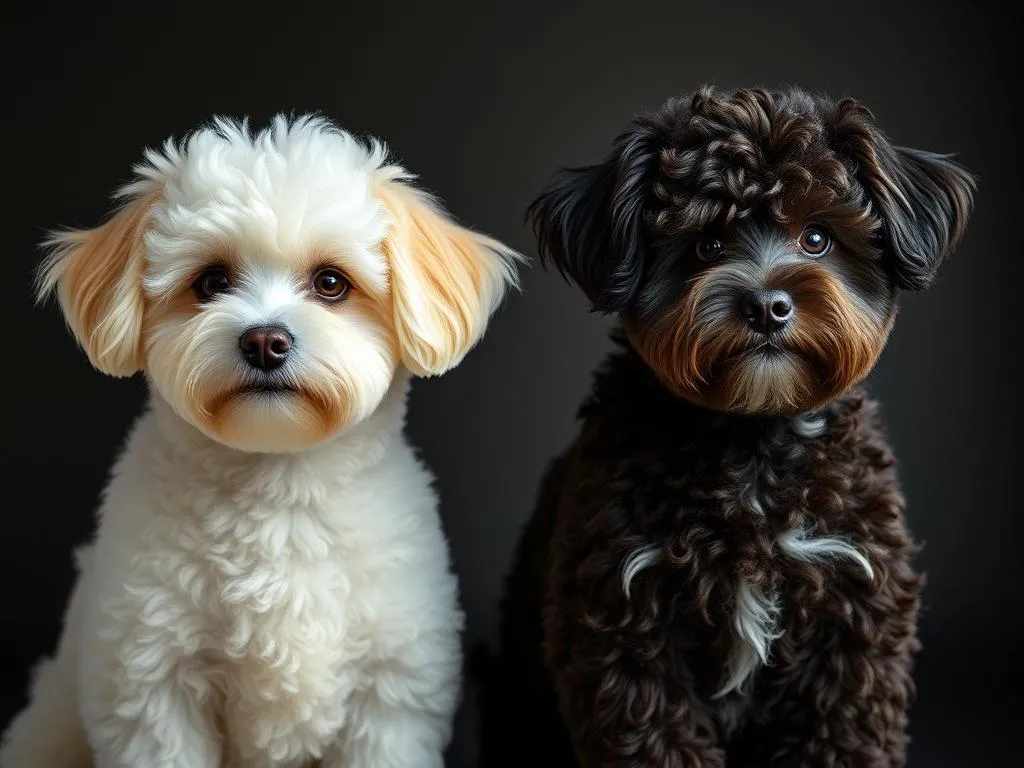
Introduction
The Bichon Frise is a charming and affectionate dog breed that has captured the hearts of many dog lovers around the world. Known for their playful demeanor and fluffy white coats, Bichon Frises have a rich history that dates back to the Mediterranean region. Originally bred as companion dogs for sailors, they quickly became popular among nobility and families alike due to their friendly nature and intelligence.
Understanding the differences between male vs female Bichon Frises is essential for potential dog owners. Each gender has unique characteristics that can influence their behavior, training, and compatibility with various lifestyles. This article aims to provide a comprehensive overview of the breed, highlighting the distinctions between male and female Bichon Frises to help you make an informed decision.
Overview of Bichon Frises
Physical Characteristics
Bichon Frises are small dogs, typically weighing between 10-20 pounds and standing about 9-12 inches tall at the shoulder. Their dense, curly coat is one of their most distinguishing features, requiring regular grooming to prevent matting. The breed is known for its hypoallergenic properties, making it a popular choice for allergy sufferers.
Color-wise, Bichon Frises are primarily white but can also display shades of cream and apricot. Their expressive dark eyes and black noses contribute to their adorable appearance.
Temperament and Behavior
Bichon Frises are characterized by their cheerful and playful personalities. They are affectionate, social dogs that thrive on human interaction. Their friendly disposition makes them great companions for families, singles, and seniors alike.
This breed is generally outgoing and enjoys socializing with both people and other pets. They have moderate energy levels, requiring daily exercise and playtime to keep them happy and healthy.
Male Bichon Frises
Physical Attributes
When it comes to size, male Bichon Frises tend to be slightly larger than females, though the difference is often minimal. Males may exhibit a more robust build, with a broader chest and larger head. Their coats are typically similar to females, but some owners report that males may have a slightly thicker coat.
Behavioral Traits
Male Bichon Frises are known for their affectionate nature. They often seek attention and enjoy being the center of their owner’s universe. This breed’s playful demeanor makes them lively companions, often engaging in games and antics that will keep you entertained.
However, there are common behavioral challenges associated with male Bichon Frises. They may display territorial marking behavior if not properly trained, and some males may exhibit dominance issues, especially if not socialized well from an early age.
Training and Socialization
Training a male Bichon Frise can be rewarding yet challenging. They respond well to positive reinforcement techniques but may require consistent guidance to curb any dominant tendencies. Early socialization is crucial, as it helps them develop good manners and reduces the likelihood of behavioral issues later on.
Providing a structured routine with training sessions and ample playtime can help channel their energy positively, making them well-adjusted pets.
Female Bichon Frises
Physical Attributes
Female Bichon Frises are typically smaller than their male counterparts, often weighing slightly less. They may have a more delicate appearance, with a refined build and softer features. While their coats are equally fluffy and require similar grooming as males, some owners note that females may be more prone to matting due to less active play styles.
Behavioral Traits
Female Bichon Frises are equally affectionate and loving but may display a more independent streak compared to males. They often bond closely with their owners but can also enjoy their alone time. Females are known for their nurturing instincts, which can make them attentive companions.
However, female Bichons may face specific behavioral challenges, such as mood swings during their heat cycles. This unpredictability can affect their temperament and behavior, requiring owners to be understanding and patient.
Training and Socialization
Training a female Bichon Frise often involves a slightly different approach. While they are eager to please, they may exhibit stubbornness at times. Utilizing positive reinforcement and consistent training methods will yield the best results. Like males, females also benefit significantly from early socialization to help them become well-rounded pets.
Establishing a routine that includes training, socialization, and playtime will help develop a confident and well-adjusted female Bichon Frise.
Key Differences Between Male and Female Bichon Frises
Personality Comparisons
When comparing the personalities of male vs female Bichon Frises, there are some notable distinctions. Males tend to be more exuberant and playful, often displaying higher energy levels. They are typically more social and may seek out interactions more frequently than females. On the other hand, females may show a more balanced temperament, blending playfulness with independence.
Health and Lifespan Considerations
In terms of health, both male and female Bichon Frises can experience similar issues, such as allergies, dental problems, and skin conditions. However, males may face specific challenges like testicular cancer if not neutered, while females are at risk for conditions related to their reproductive health, such as pyometra.
The lifespan of Bichon Frises averages between 12 to 15 years, with both genders having similar longevity expectations. Regular veterinary check-ups and a healthy diet can contribute to a long and fulfilling life for your Bichon.
Grooming and Care Needs
Grooming is a vital aspect of caring for a Bichon Frise. While both males and females require regular grooming to maintain their fluffy coats, males may need more frequent grooming due to their tendency to grow thicker fur. Bathing, brushing, and regular visits to a groomer will keep their coats healthy and looking their best.
In terms of care routines, both genders will benefit from a similar approach, but owners should be aware of any specific needs based on their individual dog’s behavior and coat characteristics.
Choosing the Right Bichon Frise for You
Factors to Consider
When deciding between a male or female Bichon Frise, several factors should be taken into account. Your lifestyle and living situation play a significant role; for instance, a more active family may appreciate the playful nature of a male, while a quieter household might prefer the calm demeanor of a female.
Additionally, if you have children or other pets, consider how a male or female Bichon Frise might interact with them. Males may be more boisterous, while females may show a nurturing side.
Personal Preferences
Personal preferences also factor into the decision. If you have a specific temperament in mind, consider how the traits of each gender align with your expectations. Furthermore, if breeding is a consideration, females may be more appealing due to their nurturing instincts, while males offer different advantages in terms of health and temperament.
Ultimately, reflecting on your priorities and preferences will help guide your choice between a male or female Bichon Frise.
Conclusion
In summary, the differences between male vs female Bichon Frises can significantly influence your experience as a dog owner. Males tend to be more playful and social, while females may offer a more balanced and nurturing disposition. Both genders are loving companions that require similar care and training, but recognizing their unique traits can help you choose the right fit for your lifestyle.
Choosing the right dog is a personal decision that should be based on individual circumstances. Whether you decide on a male or female Bichon Frise, remember that adopting from shelters or working with responsible breeders is essential for ensuring a loving and healthy addition to your family.









